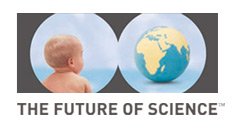Kristoffer Famm

Kris Famm is the Vice President and Head of Bioelectronics R&D at GlaxoSmithKline, a unit tasked with opening up bioelectronic medicines as a new innovation engine and source of therapeutic products for the company. He guides the unit’s discovery efforts, which seek to combine deep understanding of the neural control of visceral organs with next-generation technologies and translate it into transformational new medicines for chronic diseases. He also leads the work addressing the many scientific, business, and societal challenges that surround this new treatment modality, engaging extensively with the broader global research community. Kris did his PhD in molecular biology at the University of Cambridge, following an MSc in Chemical Engineering at Lund University, Sweden. Before joining GSK in 2009, Kris worked as a management consultant at McKinsey & Co. During his time at GSK he has previously headed the R&D Strategy Group and the Protein Degradation Discovery Performance Unit in the pharmaceutical R&D division of the company.
Bioelectronic medicines – turning neural signaling into precision therapy
The emerging field of bioelectronic medicine is pursuing the largely untapped approach of changing neural signals in peripheral nerves that control organs central in disease. As the nervous system connects to virtually every organ in our viscera, the potential is wide reaching. A couple of decades from now, bioelectronic medicines could be a mainstay of medical treatment in parallel with molecular ones. When they are, bioelectronic medicines will also bring exquisite treatment precision, personalisation and adherence given the targeted wiring of nerves, the dynamic nature of their signals, and the reliable therapy delivery from implantable devices. Imagine a device, the size of a grain of rice, which through keyhole surgery is applied on the nerve to the target organ. There it will read its underlying signalling patterns and, upon detection of a disease signature, regulate organ function by applying specific stimulation patterns. This talk will summarise the reasons to believe these precision medicines are becoming a reality and highlight questions for society as they approach the clinic.





